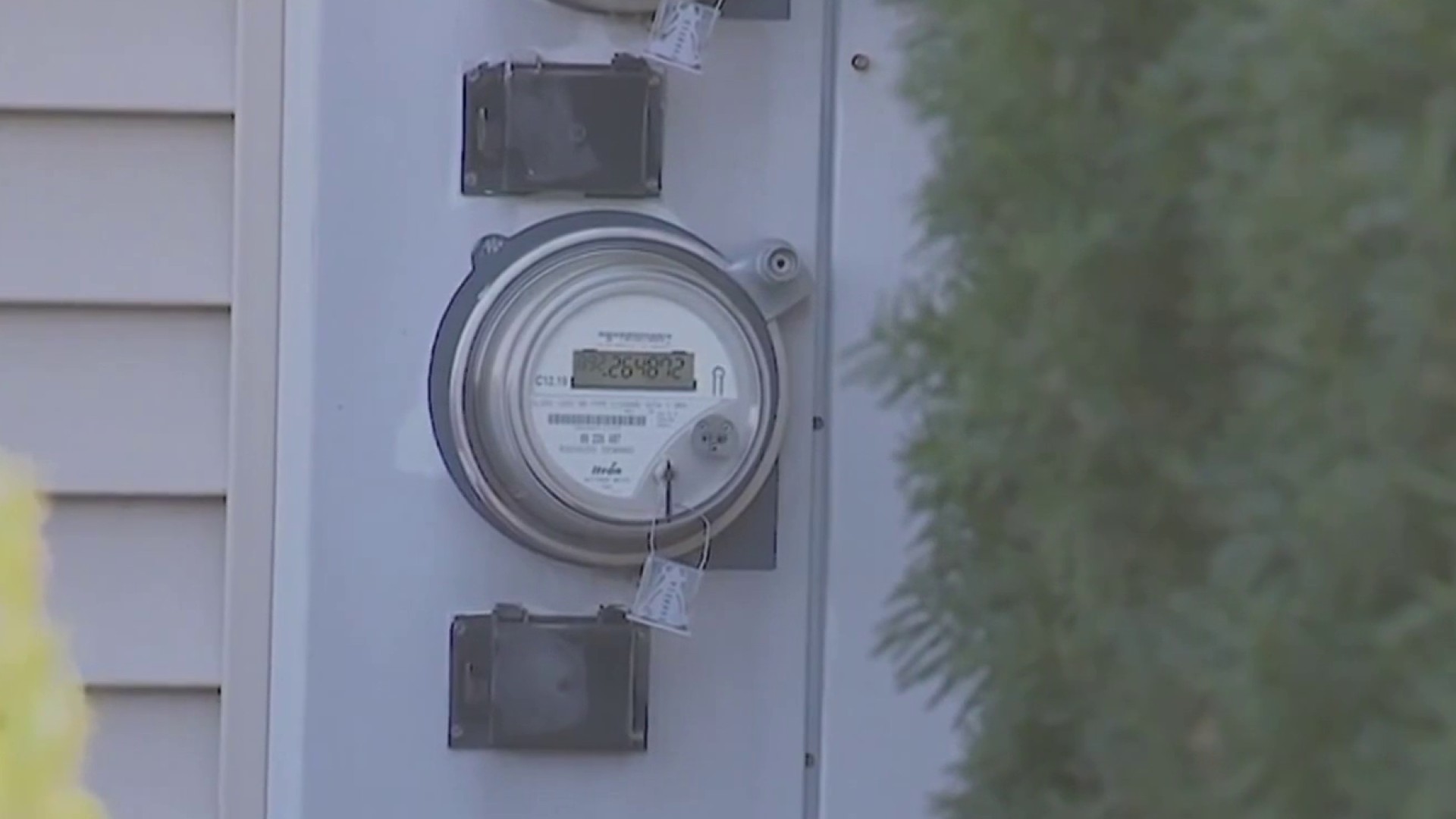This week, a group of Republicans started touring our state to ask, what are the biggest concerns of people in Connecticut when they now negotiate the budget. Energy prices and the cost of doing business in our state were among the topics.
This week, a group of Republicans started touring our state to ask, what are the biggest concerns of people in Connecticut when they now negotiate the budget.
Energy prices and the cost of doing business in our state were among the topics.
NBC Connecticut's Mike Hydeck spoke with Sen. Ryan Fazio (R-Greenwich), who was on the tour.
Mike Hydeck: So when you started listening, what did you learn?
Get top local stories in Connecticut delivered to you every morning. Sign up for NBC Connecticut's News Headlines newsletter.
Ryan Fazio: Well, over the last few years, being in the state government, the number one concern I've heard from residents of my district and across the state is the high cost of living here in Connecticut. We're one of the most expensive states in the country to live, to work, to raise a family, with the second highest taxes in the country, with the second highest electric rates in the country. And so we as Senate Republicans are not just here to kind of bang the table on issues like that, but we want to help lead, provide solutions. We have a package of solutions that will lower middle class taxes and electric bills, and we want to bring that message, that plan across the state with an affordability tour that will be kicking off this month.
Mike Hydeck: Lowering taxes is something no one is going to argue with. How do you get there?
Ryan Fazio: Well, there's several ways we can get there. First, simply by modifying the growth in spending in the state government. We don't need to cut spending across the board. We simply need to reduce the growth of spending, and debt financed spending, in particular in Connecticut.
Face the Facts
Face the Facts with NBC Connecticut goes beyond the headlines, asking newsmakers the tough questions, giving an in-depth analysis of the big stories.
Mike Hydeck: So for argument's sake, if the spending is at 6% this year, you wanted it at four? What are the numbers?
Ryan Fazio: Exactly. Something like that. So keep the fiscal budgetary guardrails in place that limit spending, and also, on top of that, limit the growth of debt finance spending, which is uniquely high in Connecticut. We also could broaden out the tax code. There are billions of dollars of special interest carve-outs, deductions and credits in the tax code. You take out some of those special deductions and carve outs, you can lower taxes on middle class families, income tax rates in particular. Our goal is to reduce income taxes by about $1,000 for the average family in Connecticut.
Mike Hydeck: Give me an example of one of those carve outs. Are you talking about a carve out for Sikorsky? Are you talking about a carve out for something else that I can't even think of.
Ryan Fazio: According to the state government, there's $9 to $10 billion of these special carve outs. Finding economies there, including the film production tax credit, is a very costly program that hasn't yielded to job creation. You don't need to eliminate all these, you just need to find $1 billion to $2 billion of economies among the $9 or $10 billion of special tax carve outs in the tax code. That's fair. It will improve affordability for middle class families to the tune of $1,000 per year, and it will help generate economic growth for everybody.
Mike Hydeck: Is there push back on that?
Ryan Fazio: You know, most special carve outs in a tax code exist because there's someone benefiting from it. Normally, they have more access to the state government, more lobbyists and so on and so forth. And a lot of them are well meaning, but they keep piling one on top of the other, and that means that everyone else who doesn't have a lobbyist or some sort of connection to Hartford sees their taxes go up and up. We want to reduce everybody's taxes across Connecticut. We can do that. We have a plan to do that, and we're trying to lead as Senate Republicans.
Mike Hydeck: So let's talk energy. Everybody complains about high energy prices. I think we're second to Hawaii when it comes to paying rates. How do you attack that? It's a difficult problem. There are a lot of solutions on the table. Where do you start?
Ryan Fazio: Well, I think the bill that I co-authored, starting two years ago, this year it's Senate Bill 647, is the only comprehensive solution on the table that would lower rates. First and foremost, it would cut the public benefits charge from your electric bill. That's a hidden tax that funds 57 different government programs embedded through your electric bill. It's unfair, it's regressive, and it's one of the main reasons, according to both PURA testimony and the Office of Legislative Research, both non-partisan, that Connecticut has higher rates than the rest of the country. You start to take out some of that fat, you can really make it much more affordable, to the tune of $500, $600, $700 in savings for the average family in the state, among other reforms. It's a six point plan that I co-authored.
Mike Hydeck: Supply is a big issue in Connecticut.
Ryan Fazio: Supply is a big issue in Connecticut. I'm happy to see that the governor has shown some support for expanding natural gas capacity to the northeast. We pay thousands of dollars higher in natural gas.
Mike Hydeck: But wait, we're getting natural gas from Canada. And guess who just got a tariff. So that's got to complicate that.
Ryan Fazio: Yes, although we get more of our gas from the domestic U.S. from the Marcellus region around Pennsylvania. So yes, irrespective what federal policy is, we need to do our best here on the state level to make Connecticut more affordable and expanding supply in an affordable fashion, would do that.
Mike Hydeck: Concerns about federal funding getting clawed back. We've had that in many arenas. $155 million for medical care that are going back to the federal government. They said it was COVID money left over. Education was another one. This has got to be a challenge moving forward. We're going to have to try to, the governor said, we're going to have to try to offset those. Do you foresee a special session coming up this summer to do that? Because he's probably not going to do it now?
Ryan Fazio: Well, listen, if Democrats in charge of the state government are worried about federal funding, then they should ask themselves why they just proposed a budget, why they just proposed to go around the budgetary guardrails which save money and have saved billions of dollars of monies for the state government over the last several years. Why would we be increasing spending by more than the spending cap, using gimmicks to go against those budgetary guardrails that were passed in bipartisan fashion seven years ago, if we're worried about federal funding? The other point I would just make is Connecticut is a donor state to the federal government, so we pay more in taxes than we get funds in return. So if there's limitations on taxes and spending from the federal level, Connecticut taxpayers theoretically would benefit on the whole. But we have to be reactive to what happens in Washington, and try to be balanced and offset any cuts that would come, while also alleviating the tax burden on Connecticut residents in the long term.



